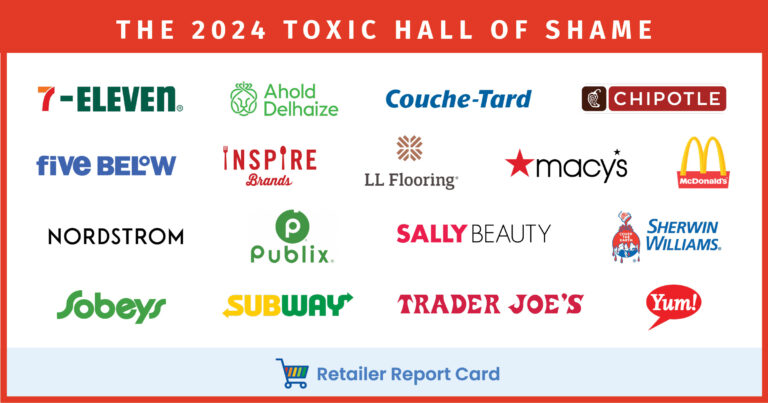Pesticides
About Pesticides
Pesticides are chemicals used to kill pests, such as insects or weeds. Many different kinds of synthetic (human-made) pesticides are used in agriculture or in home-use products. It’s possible to avoid exposures with some simple tips.
How am I exposed?
We are exposed through food grown with pesticides or if we use pesticide products in our homes or gardens. Pesticides can also drift from fields as they are applied, exposing those living and working nearby.
- Fruit and vegetables most likely to be contaminated with pesticides include : apples, bell peppers, celery, cherries, grapes, nectarines, peaches, pears, potatoes, raspberries, spinach, and strawberries.
- The most recent federal testing found 98% of apples have at least one pesticide contaminant, and 97% of bell peppers are contaminated. Nine pesticides were found on a single apple, and eight in a single grape sample.
- The insectide carbaryl is widely used in Washington on apple and grape crops and on lawns and gardens.
- Organophosphate insecticides, which include diazinon, azinphos methyl, and malathion, are very commonly used in agriculture.
- Farm workers and farm worker families are exposed to the most agricultural pesticides by far. While mixing and applying pesticides, they come into contact with significant amounts of chemicals, and can track them into their homes on their shoes and clothing.
Why should I be concerned?
- Organophosphate and carbamate pesticides can have immediate effects on the nervous system, with symptoms including weakness, cramps, breathing trouble, nausea, and vomiting.
- Animal studies suggest that organophosphates may impair children’s brain development. Studies on farmworkers find that people with greater exposure have poorer motor function and shorter attention spans.
- Pesticides contaminate streams, rivers, and groundwater.
- Many pesticides are known or likely to cause cancer. Studies have found that farmers using certain pesticides have a higher risk of cancer.
- Many pesticides are highly toxic to birds, bees, and fish. Most insecticides are toxic to all insects, including those that are harmless or beneficial.
What can government and industry do?
The federal pesticide law – the Federal Insecticide, Fungicide and Rodenticide Act or FIFRA – makes no guarantee that pesticides allowed for use will not cause harm to people and other living things.
The Food Quality Protection Act of 1996 made provisions to improve this standard somewhat for pesticides used on food, but EPA has yet to implement many of its important provisions. However, many hazardous pesticides continue to be used.
- To eliminate exposure to these pesticides, EPA should take action to phase out the most toxic pesticides, including those that can cause cancer, hormone disruption, reproductive problems, and learning disabilities.
- The Washington State Department of Agriculture can also take action to phase out these and other toxic pesticides.
- At the state level, the legislature should also continue to provide funding to Washington State University’s Center for Sustaining Agriculture and Natural Resources to develop alternatives for both conventional and organic growers.
- Cities and counties can eliminate their own use of toxic pesticides on public property, and educate residents about replacing pesticides with healthier practices in the home and garden.
How can I reduce my exposure?
Although some exposure to pesticides is difficult to avoid, you can significantly reduce pesticides in your diet and your surroundings with a few simple steps.
Buy organic. Organically grown food is produced without the use of toxic pesticides. It’s especially important to buy organically grown apples, celery, sweet bell peppers, peaches, strawberries, imported nectarines, grapes, spinach, lettuce, cucumbers, domestic blueberries, potatoes, green beans, and kale/other leafy greens Ask your grocer to start carrying organic food if it doesn’t already.
Use alternatives to pesticides in your home and garden. There are many non-chemical methods of pest control that are safe and effective, such as using traps and barriers and removing pests physically. Focus on preventive techniques, which are most effective in the long run. For example, plug holes to keep insects from coming in the house, and grow healthy grass so that weeds don’t thrive in the lawn. Extensive resources for preventing and addressing pest problems are available here.
Advocate for pesticide reduction in your school and park. Many school districts, cities, and counties have policies to replace toxic pesticides with safer practices. More information on pesticides is available here.
Additional Resources
About Pesticides
- News and alerts on pesticides (Beyond Pesticides)
- Look up hazards of pesticide products and ingredients (PAN Pesticides Database)
- Pesticide Information Profiles from EXTOXNET
- See what pesticides have been found in your streams
- Join the National Coalition for Pesticide Free Lawns
About Controlling Pests Without Pesticides
Take Action


